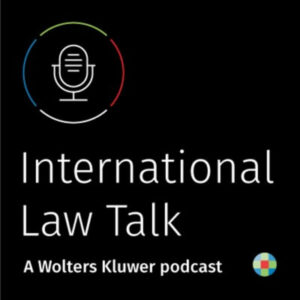 International Law Talk is a series of podcasts through which Wolters Kluwer provides the latest news and industry insights from thought leaders and experts in the fields of International Arbitration, IP Law, International Tax Law, and Competition Law. Here at Kluwer Arbitration Blog, we highlight the podcasts focused on international arbitration. In this latest episode, Kiran Nasir Gore, Associate Editor of Kluwer Arbitration Blog, interviews Dr Herfried Wöss.
International Law Talk is a series of podcasts through which Wolters Kluwer provides the latest news and industry insights from thought leaders and experts in the fields of International Arbitration, IP Law, International Tax Law, and Competition Law. Here at Kluwer Arbitration Blog, we highlight the podcasts focused on international arbitration. In this latest episode, Kiran Nasir Gore, Associate Editor of Kluwer Arbitration Blog, interviews Dr Herfried Wöss.
Herfried is a Partner of Wöss & Partners, which has offices in Mexico City, Washington, DC and Vienna. He acts as an international arbitrator and counsel. He is also the co-author, with his partner Adriana San Román, of leading publications relating to damages and quantum as they arise in complex arbitrations, including in the context of income-generating contracts, assets, and investments. He is ranked in the Hall of Fame by the Legal 500 and his firm in Tier 1 in Arbitration and frequently handles high-stakes and complex arbitrations.
The podcast ‘Quantifying International Disputes’ centers on the issues that arise in the context of damages and valuation analyses in international disputes.
A few takeaways from the conversation include:
- When assessing damages and valuation in international disputes. Herfried recommends that counsel proceed in four steps: 1) identifying the type of contract at issue (whether it is an interchange contract, for the exchange of goods or services for money, or whether it is an income-generating contract); 2) identifying the measure of damages permitted under the applicable law; 3) identifying the evidence available to support the structuring of a legal claim; and 4) maintaining a solid understanding of the applicable law.
- A vital piece of the puzzle is to select a high-quality quantum expert to help present a client’s case. Herfried recommends that counsel select an expert who understands the applicable law, has strong analytical skills, and maintains credibility and ethical standards that allow the arbitral tribunal to rely upon the expert’s assessments.
- Most international arbitration practitioners and students will be familiar with the famous Chorzów Factory case, which was heard by the Permanent Court of International Justice (PCIJ) in 1927 and resulted in a judgment the following year. In summary, it stands for the principle that violations of international law require reparations to ‘wipe out’ all the consequences of the illegal act and restore the aggrieved party to the position it would have been but for the harmful act. Herfried explains the historical origins of the principles underlying this decision, the required element of causation that is often overlooked, and the burden of proof standard that must be met. He further explains that, today, the Chorzów Factory principles have found their way into the damages jurisprudence of various jurisdictions, including Mexico.
- As concluding remarks, Herfried discusses how different approaches to damages and valuation are being considered in the ongoing work of UNCITRAL Working Group III, which may influence future cases in this field.
Listen to the discussion: ‘Quantifying International Disputes,’ Kiran Nasir Gore in conversation with Dr Herfried Wöss, Partner of Wöss & Partners.
To learn more about damages and valuation in international arbitration, watch for Kluwer Arbitration’s forthcoming new topic on Damages and Valuation in the Practical Insights by Topic tool or learn more about Kluwer Arbitration Practical Tools.
Follow the coverage of the International Law Talk arbitration podcasts on Kluwer Arbitration Blog here.
________________________
To make sure you do not miss out on regular updates from the Kluwer Arbitration Blog, please subscribe here. To submit a proposal for a blog post, please consult our Editorial Guidelines.


